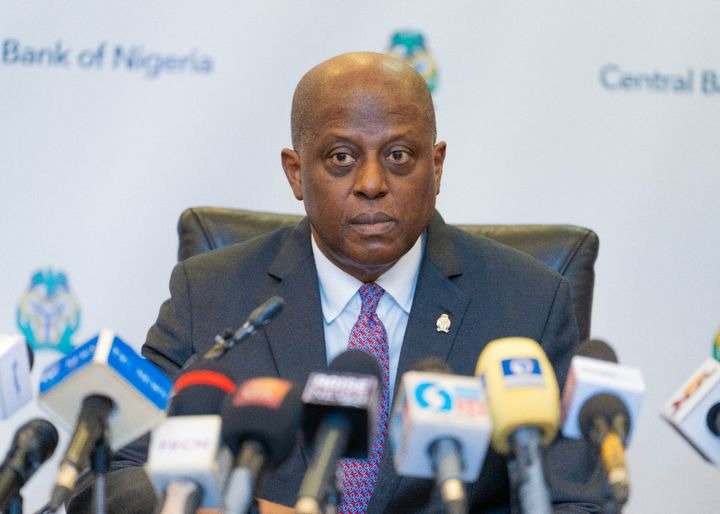Governor of the Central Bank of Nigeria (CBN) Olayemi Cardoso, has said that the bank is working towards reducing the country’s inflation to a single digit in the medium to long term.
He stated this while briefing the press on the decisions of the Monetary Policy Committee (MPC) which held for the first time in the year, and also the committee’s 299th meeting.
According to Cardoso, while the recently rebased Consumer Price Index (CPI) indicates a year-on-year headline inflation rate of 24.48 per cent, which reflects the country’s economic realities, this figure remains significantly above acceptable levels.
He stated that the apex bank, as a data-driven institution, is currently reviewing the rebased figures released by the National Bureau of Statistics (NBS) and will publish its findings when ready.
Cardoso disclosed that the committee was unanimous in its decision to hold all parameters including retaining the Monetary Policy Rate (MPR) at 27.50 percent and the asymmetric corridor around the MPR at +500/-100 basis points.
The committee also retained the Cash Reserve Ratio (CRR) of Deposit Money Banks at 50 percent and Merchant Banks at 16 per cent. It equally left the Liquidity Ratio unchanged at 30 per cent.
He noted that the decision to maintain interest rates is supported by recent macroeconomic developments, which are anticipated to positively influence price dynamics in the near to medium term.
These include the stability in the foreign exchange market with the resultant appreciation of the exchange rate and the gradual moderation in the price of fuel prices.
However, the CBN said it remains concerned about the risk of persisting inflationary pressures driven largely by food prices.
“We will certainly stay that course. We will be vigilant. We will not take anything for granted. We believe that inflation has been too high for too long,” he added.
The CBN governor emphasised that achieving the single-digit inflation target will require stronger coordination between monetary and fiscal authorities, especially as improvements in various markets continue to progress.
He also noted that the recent Monetary Policy Forum, which successfully brought together fiscal and monetary authorities, marks the beginning of such coordination and highlights the potential benefits of collaborative efforts.
Cardoso noted that CBN reforms such as the Electronic Foreign Exchange Matching System (EFEMS) and the new FX code have boosted investor confidence, stabilised the naira, and increased reserves to $39.4 billion by February 14, 2025.







